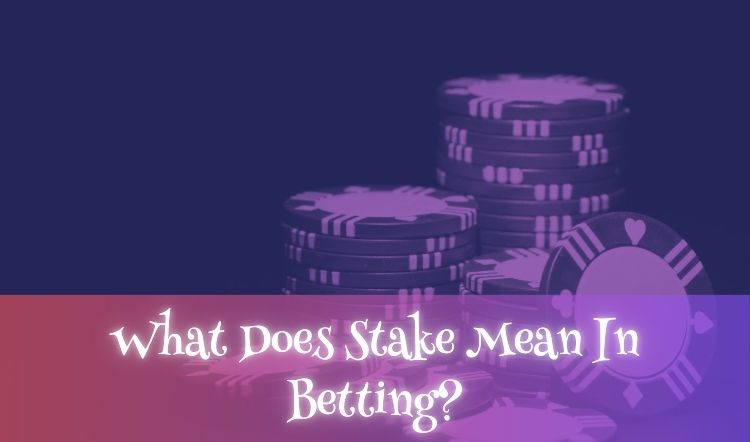
Whether you're new to betting or just looking to sharpen your understanding of the basics, one term you're guaranteed to encounter is “stake.” It’s a simple word, but it plays an important role in every wager placed.
In this blog post, we’ll walk you through the key concepts surrounding stake in the context of betting. You’ll see a practical example of how it works, learn what “total stake” refers to, and discover the difference between a bet and a stake—two terms that are often used interchangeably but mean different things.
Let’s break it all down.
What Does Stake Mean?
In betting, the term “stake” simply refers to the amount of money you choose to place on a bet. Whether you’re backing a horse in The Grand National, predicting which football team will lift the World Cup, or trying your luck on slot games, deciding on your stake is the very first step.
There might be minimum or maximum limits set by the bookmaker, but ultimately, the size of your stake is your choice. It’s important to remember, though, that winning is never guaranteed, and that unpredictability is part of what makes betting exciting.
One crucial rule to keep in mind when setting your stake is to never wager more than you can comfortably afford to lose.
Stake Example
Imagine you decide to place a bet on England winning the FIFA World Cup, choosing to stake £10 on this outcome.
If your bet is successful, you would receive your original stake back, along with any winnings. For example, if the odds were 30/1, your £10 stake could bring in £300 in winnings.
So, if England were to win, you would get £300 in profit, plus your original £10 stake returned to you.
What Does Total Stake Mean?
If you choose to place a bet, your total stake is the overall amount of money you decide to put down on that bet or on a series of bets. This might be just one wager or several combined, depending on what you want to stake.
Once the event’s outcome is decided, if your bet wins, you’ll get your total stake back along with any winnings. But if the bet doesn’t go your way, you would lose the full amount of your original stake.
Being clear about your total stake can help you manage your betting budget and keep track of how much you’re placing on any particular wager.
What's The Difference Between Bet & Stake?
If you decide to place a wager, you might notice the terms bet, stake, and wager being used quite interchangeably. In fact, they all essentially mean the same thing: the amount of money you choose to put on a particular outcome happening.
So, whether you say you’re placing a bet of £10, staking £10, or making a £10 wager, you’re referring to the same thing—the sum you’re putting forward with the hope that your prediction is correct.
While these words might be used differently in everyday conversation, when it comes to betting, they all describe your financial commitment to a specific event or result.
It’s worth remembering, though, that you should always gamble responsibly by only placing amounts you feel comfortable with and never betting more than you can afford to lose.
**The information provided in this blog is intended for educational purposes and should not be construed as betting advice or a guarantee of success. Always gamble responsibly.
